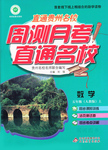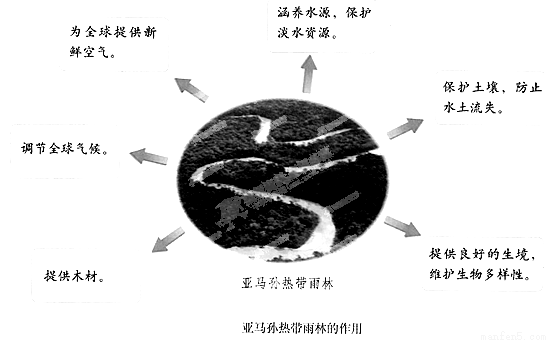Around the world more and more people are ___1___ dangerous sports and activities. Of course there have always been people who have ___2___ adventure—those who have climbed the ___3___ mountains, explored unknown parts of the world or ___4___ in small boats across the greatest oceans. Now, however, there are people who look for an immediate pleasure from a ___5___ activity which may only last a few minutes or even ___6___.
I would consider bungee jumping to be a good example of such an activity. You ___7___ from a high place about 200 meters above the ground with an elastic rope ___8___ to your ankles. You ___9___ at up to 150 kilometers an hour until the rope stops you from ___10___ the ground. It is said that 2 million people around the world have now ___11___ bungee jumping. Other activities, ___12___ most people would say are as dangerous as bungee jumping, ___13___ jumping from tall buildings and ___14___ into the sea from the top of high rocks.
Why do people take part in such activities as these? Some psychologists(心理学家) suggest that it is because life in ___15___ societies has become safe and boring. Not very long ago, people’s lives were constantly under ___16___. They had to go out and hunt for ___17___, and life was a continuous battle for survival.
Nowadays, according to many people, life offers ___18___ excitement. They live and work in relatively safe condition; they buy food in shops; and there are doctors and hospitals to ___19___ them if they become ill. The answer for some of these people is to ___20___ danger in activities such as bungee jumping.
1. A. escaping from B. taking part in C. going in D. taking in
2. A. looked up B. looked into C. looked for D. looked around
3. A. lowest B. highest C. beautiful D. wild
4. A. sailed B. swam C. jumped D. crossed
5. A. safe B. excited C. funny D. dangerous
6. A. years B. seconds C. hours D. days
7. A. jump B. run C. walk D. cross
8. A. followed B. tied C. brought D. took
9. A. go B. run C. fall D. fly
10. A. falling B. running C. flying D. hitting
11. A. tried B. looked for C. found D. studied
12. A. that B. which C. it D. what
13. A. hold B. include C. find D. contain
14. A. swimming B. running C. diving D. sailing
15. A. old B. modern C. past D. formal
16. A. safety B. imperfection C. danger D. perfection
17. A. animals B. food C. water D. dangers
18. A. few B. little C. much D. many
19. A. look at B. look into C. look for D. look after
20. A. look for B. look after C. explore D. find
1-5BCBAD 6-10BABCD 11-15ABBCB 16-20CBBDA解析:
1. B。从本段后面所举的例子来看,此处说的是越来越多的人正参加各种危险的运动。“从事”应说 go in for,故 C 不对。
2. C。上句说越来越多的人参加各种危险的运动,从 Of course 可推测此处说“也不乏有人参加冒险”。
3. B。从破折号来看,下文是通过例子来说明有人参加冒险活动。根据所举的几个例子来看,此处选 highest 才能与“冒险”这个主题相吻合,并与 explored unknown parts of the world 等语意一致。
4. A。从下面的 in small boats across the greatest oceans 看此处说的应是“乘船在大洋上航行”,故选用 sail。
5. D。此句中的however说明后面提到的运动与前面提到的不同,这里说的是有些人从持续时间很短的一项运动中得到瞬间快乐。从下文来看,作者认为 bungee 就属于这种运动,也是很危险的,故用 dangerous。
6. B。从前面的 …who look for an immediate pleasure 及 which may only last a few minutes or even… 等可推测,此处说的是这项运动持续时间短,显然 hours, days 和 years 不合语境。
7. A。从这一段开始介绍 bungee 运动。根据下文介绍的 from a high place about 200 meters above the ground 来看,该运动是从离地面大约 200米处望下跳。
8. B。在往下跳时,运动员的脚踝要系在绳子上,也就是要把绳子栓在脚踝上,所以用 tied。
9. C。从高处跳起,然后坠落下去,所以用 fall。
10. D。此处介绍的是系绳子的目的——不让你撞到地上。
11. A。根据下文看,世界上有很多人都已经尝试过蹦极这项运动。
12. B。此处应用 which 引导非限制性定语从句,which 指代前面提到的 other activities。
13. B。前面提到的 bungee 是从高处往地面跳,这里具体说从何处往下跳:一是从大楼往下跳,二是从高的岩石上往海面跳。故此处应用 include。
14. C。从下文的 into the sea 可看出是“跳水”,故用 diving。
15. B。从上下文来看,本文所介绍的活动是新兴的一项运动,也就是现代人所从事的活动,由此可推断此处选 modern,既说明“现代社会人们的生活很安全、枯燥”,故许多人从事这项运动来寻找刺激。
16. C。前面说现在人们生活舒适而乏味,与此相对照,此处说的是过去人们外出狩猎,生活就是持续的生存斗争,故此处应选 danger。
17. B。从 and life was a continuous battle for survival 等来看,此处说的是人们外出“猎取食物”,故用 food。
18. B。从后文可知“现在人们生活、工作在相对安全的环境下”,与狩猎相比,现代人的生活少了刺激,所以也就少了欢乐,故用 little。
19. D。从 if they become ill 知,此处说的是“当生病时有大夫等来照看他们”,故用 look after。
20. A。此句是总结全文的话。从整篇文章来看,此处说的是人们在刺激的运动中寻找危险。
科目:初中英语
来源:
题型:阅读理解
Norman Cousins was a businessman from the United States who often traveled around the world on business. He enjoyed his ___1___ and traveling.
Then, after returning to the United States from a ___2___ trip to the Union of Soviet Socialist Republic(USSR), Mr. Cousins got sick. Because he had pushed his body to the ___3___ of its strength on the trip, a change began to take place ___4___ him. The material between his bones became ___5___.
In less than one week after his return, he could not ___6___. Every move that he ___7___ was painful. He was not able to sleep at night. The doctors told him that they did not know how to cure Mr. Cousins’ problem and he might never ___8___ over the illness. Mr. Cousins, however, refused to give up ___9___ Mr. Cousins thought that ___10___ thoughts were causing bad chemical changes in his body. He did not want to take medicine to cure himself. ___11___, he felt that happy thoughts or ___12___ might cure his illness.
He began to ___13___ on himself while still in the hospital by watching funny shows on television. Mr. Cousins quickly found that 10 minutes of real laughter during the ___14___ gave him two hours of pain-free sleep at night. ___15___ the doctors could not help him, Mr. Cousins left the hospital and checked into a hotel room where he could ___16___ his experiments with laughter. For eight days, Mr. Cousins rested in the hotel room watching funny shows on television, reading funny books, and sleeping ___17___ he felt tired. Within three weeks, he felt well ___18___ to take a vacation to Puerto Rico where he began running on the beach for ___19___. After a few months, Mr. Cousins returned to work. He had laughed himself back to ___20___.
1. A. time B. holiday C. sleep D. work
2. A. boring B. tiring C. dangerous D. pleasant
3. A. top B. degree C. problem D. limit
4. A. from B. around C. inside D. beside
5. A. weak B. ill C. false D. painful
6. A. speak B. breathe C. stand D. see
7. A. made B. did C. took D. gave
8. A. look B. get C. turn D. think
9. A. effort B. hope C. treatment D. arrangement
10. A. foolish B. unusual C. funny D. unhappy
11. A. Instead B. however C. Therefore D. Otherwise
12. A. sleep B. travel C. laughter D. television
13. A. rescue B. operate C. try D. experiment
14. A. day B. week C. month D. year
15. A. Promising B. Deciding C. Doubting D. Recognizing
16. A. invent B. begin C. continue D. prove
17. A. until B. whenever C. unless D. so that
18. A. soon B. completely C. slowly D. enough
19. A. exercise B. illness C. rest D. pleasure
20. A. power B. sense C. health D. happiness
查看答案和解析>>



 直通贵州名校周测月考直通名校系列答案
直通贵州名校周测月考直通名校系列答案 培优三好生系列答案
培优三好生系列答案
